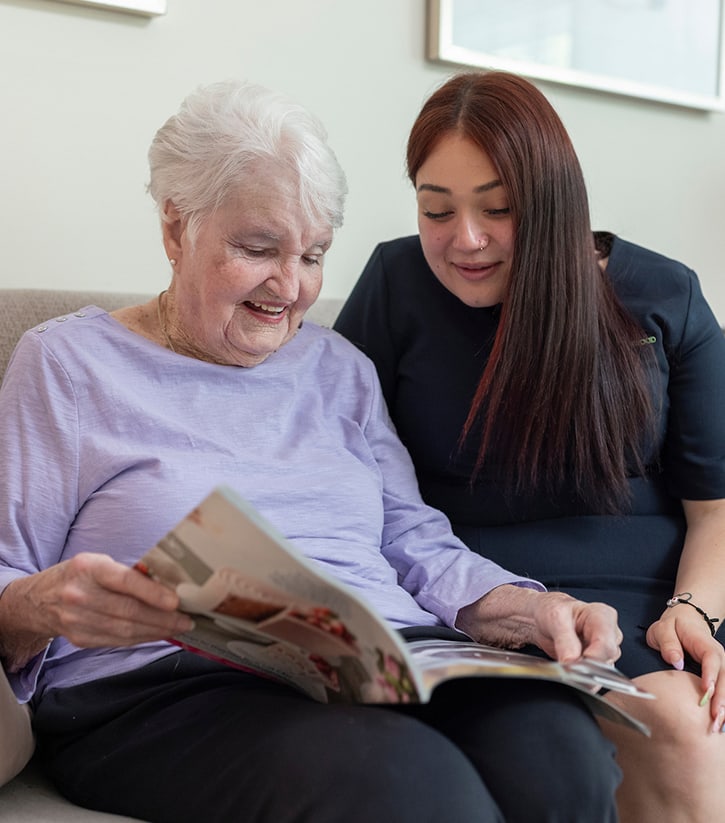Key Takeaways
- Hip fractures can affect cognitive function through surgical stress, inflammation, and recovery challenges
- Risk factors like pre-existing cognitive issues and delayed treatment increase vulnerability
- Recovery patterns vary, but early intervention and proper support improve outcomes
- Prevention strategies focus on fall prevention and maintaining both bone and brain health
- Specialized care, like memory care or respite care, may help families navigate dual challenges
When your loved one experiences a hip fracture, you’re naturally focused on their physical recovery. However, research shows these injuries can create ripple effects that extend far beyond broken bones. While managing physical rehabilitation becomes a priority, understanding physical therapy benefits and exploring respite care options can provide valuable support during this challenging time.
Yes, hip fractures can impact cognitive decline in older adults through multiple pathways, including surgical stress, inflammation, and recovery complications. Understanding this connection helps you advocate for comprehensive care that addresses both physical and mental well-being. If your loved one is in memory care, you can also speak with the staff at their community to learn about how you can support their recovery.
Understanding the Connection Between Hip Fractures and Cognitive Health
Cognitive decline refers to gradual changes in thinking, memory, and reasoning abilities. These changes can range from mild forgetfulness to more serious memory problems that affect daily activities.
Hip fractures create far more disruption than just a broken bone. The injury triggers a cascade of physical and emotional stress that can temporarily—or sometimes permanently—affect how your loved one’s brain functions.
This relationship works both ways. People with early cognitive changes may be more likely to fall and fracture their hip, while the fracture itself can accelerate existing cognitive concerns. Understanding the complex relationship between physical health and mental well-being helps families prepare for the comprehensive support that may be needed during recovery.
How Hip Fractures May Influence Cognitive Function
Physical trauma from a hip fracture creates significant stress on the body’s systems. This stress response can temporarily disrupt normal brain function, affecting memory, attention, and decision-making abilities.
Surgery and anesthesia, while necessary for healing, can impact cognitive abilities in older adults. The medications used during surgery may linger in the system longer, potentially causing confusion or memory problems that persist beyond the immediate recovery period.
Your loved one’s body responds to injury with inflammation—a natural healing process. However, this inflammatory response can affect brain tissue and contribute to temporary or lasting changes in cognitive function.
Post-Surgery Complications and Cognitive Changes
Hospital environments can trigger delirium, a temporary state of confusion and disorientation. The unfamiliar surroundings, disrupted sleep patterns, and medical procedures create conditions that may worsen cognitive symptoms.
Pain medications necessary for recovery can cloud thinking and affect mental clarity. While managing pain remains important, these medications may contribute to confusion or memory problems during the healing process.
Poor sleep quality in hospitals disrupts your loved one’s natural rest patterns. Sleep plays a crucial role in cognitive function, and ongoing sleep problems can compound existing thinking difficulties.
Risk Factors That Increase Vulnerability
Adults who already experience mild memory problems or early cognitive changes face higher risks. The additional stress from a hip fracture can push these subtle issues into more noticeable territory.
Advanced age combined with other health conditions creates a perfect storm for complications. Your loved one’s body may struggle to manage multiple stressors simultaneously, affecting their cognitive recovery.
When treatment gets delayed after a fracture occurs, the window for optimal outcomes narrows. Quick medical attention helps minimize both physical and cognitive complications.
Poor nutrition at the time of injury affects healing capacity. Your loved one’s brain needs proper nutrients to cope with stress and recover from trauma.
Warning Signs to Watch For
Pay attention to new memory problems or increased confusion after your loved one’s treatment. These changes might include forgetting familiar people, getting lost in familiar places, or struggling with previously simple tasks.
Notice if your loved one has trouble following rehabilitation instructions or seems unable to participate in their recovery plan. This could signal cognitive changes that need addressing.
Watch for increased anxiety, depression, or personality changes. These emotional shifts often accompany cognitive changes and deserve attention from healthcare providers.

Recovery Patterns and Potential for Improvement
Cognitive recovery typically follows a gradual timeline that may extend months beyond physical healing. Most people see improvements in the first 3–6 months, though some changes may persist longer.
Several factors support better cognitive outcomes after hip fracture. These include prompt medical treatment, good nutritional support, active family involvement, and early participation in rehabilitation activities.
People with higher education levels often show more resilience in cognitive recovery. However, this doesn’t mean others can’t recover well—it simply highlights the importance of mental stimulation and engagement.
Early intervention makes a significant difference in preserving cognitive function. When healthcare teams address both physical and mental health needs from the beginning, outcomes can significantly improve.
Supporting Cognitive Health During Recovery
Mental stimulation activities help maintain cognitive function during rehabilitation. Simple puzzles, reading, conversation, and familiar hobbies can support brain health alongside physical therapy. Exploring suitable hobbies can provide meaningful engagement during the recovery process.
Family involvement and social connections play crucial roles in recovery. Your presence, encouragement, and participation in care planning help your loved one maintain their sense of identity and purpose.
Prevention Strategies and Protective Measures
Fall prevention programs protect both bone and brain health by reducing fracture risk. These programs focus on strength training, balance exercises, and home safety modifications.
Safe exercise routines help maintain bone density while supporting cognitive function. Activities like walking, gentle resistance training, and balance classes provide dual benefits. Chair exercises offer a safe starting point for maintaining strength and mobility.
Regular cognitive assessments help catch early changes before they become serious problems. When healthcare providers monitor both physical and mental health, they can intervene more effectively.
Creating supportive home environments reduces fall risks while encouraging independence. Simple modifications like better lighting, grab bars, and clear walkways make a significant difference.
When to Consider Memory Care Services
Signs that your loved one might benefit from specialized support include persistent confusion, difficulty managing daily tasks, or safety concerns at home. These indicators suggest that additional care could help preserve their quality of life.
Memory care communities understand the unique challenges faced by people dealing with both recovery from injury and cognitive changes. These specialized environments provide structured support while maintaining dignity and independence.
Getting the Right Support for Your Loved One
Finding communities that understand complex needs can make a tremendous difference in your loved one’s recovery and ongoing well-being. The right environment provides appropriate support while encouraging continued growth and engagement.
Planning for different levels of care as needs change helps you stay ahead of challenges. Whether your loved one needs independent living with some support or more intensive memory care, having options available reduces stress for everyone.
At The Hidenwood, we understand how hip fractures can impact cognitive health, and our team is trained to provide compassionate care that addresses both physical and mental well-being. Schedule a tour today to see how our warm, family-oriented community can help you and your loved one navigate these challenges with dignity and hope.














